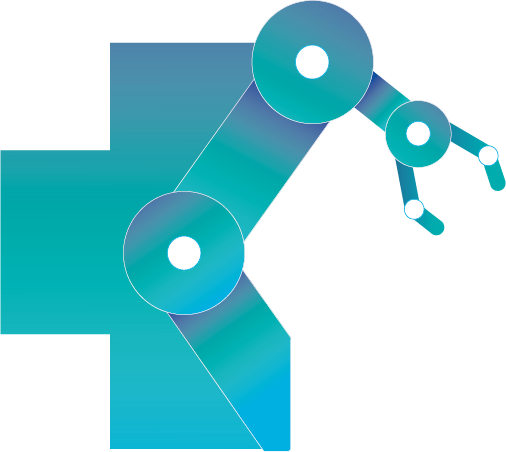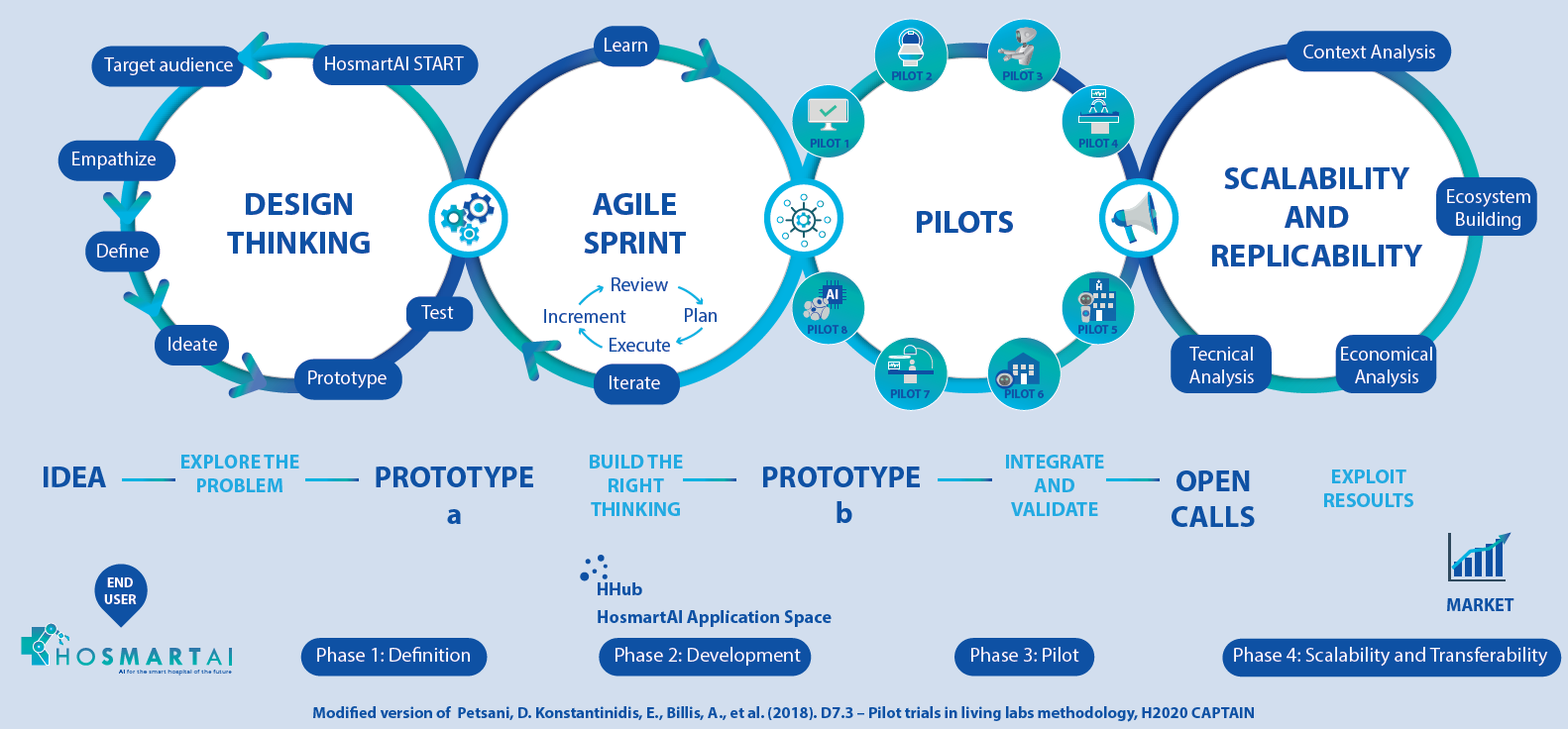Text by:
Fundación INTRAS
Within the HosmartAI project, we work on ensuring the quality of research reflected in the design, the methodology, the analysis and the use of resources.
As part of this approach, the project fully endorses the idea and principles of Responsible Research and Innovation (RRI) such as public engagement (through stakeholder involvement and a multidisciplinary approach), gender (by taking into account gender differences during all research activities), open access (through open access publishing and making datasets available) and ethics (by conducting all activities according to legal and ethical national and European requirements and codes of practice).
These methodologies will be used during the core phases of the project:
- Phase 1: Definition – consists on the Requirements and architecture that will create the basis of the rest of the work. This Phase will incorporate the Living lab concepts and design thinking principles.
- Phase 2: Development Cycles – that will include the Platform and the Pilots development and will be based on agile software development. In parallel, the clinical outcomes will be measured without the HosmartAI solution.
- Phase 3: Validation – This phase will be performed by Pilot testing;
- Phase 4: Scalability and Transferability – for facilitating the further adoption of HosmartAI outcomes and the exploitation of results. Target groups will be identified and reached via different channels: personal networks of the experts involved in the consortium, dissemination via platforms, the project website, and involvement in a series of workshops and webinars to promote good practices, insights and lessons learned. A continuous stakeholders engagement strategy will be established that will facilitate an ongoing process of economic and technical analysis and business assumptions validation.







